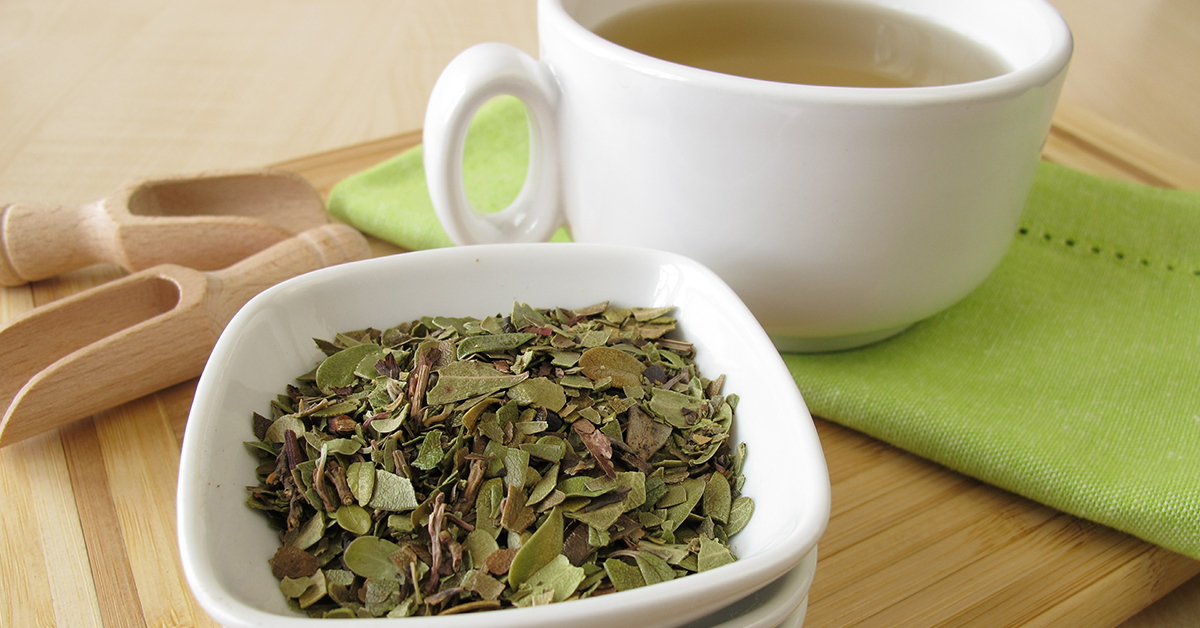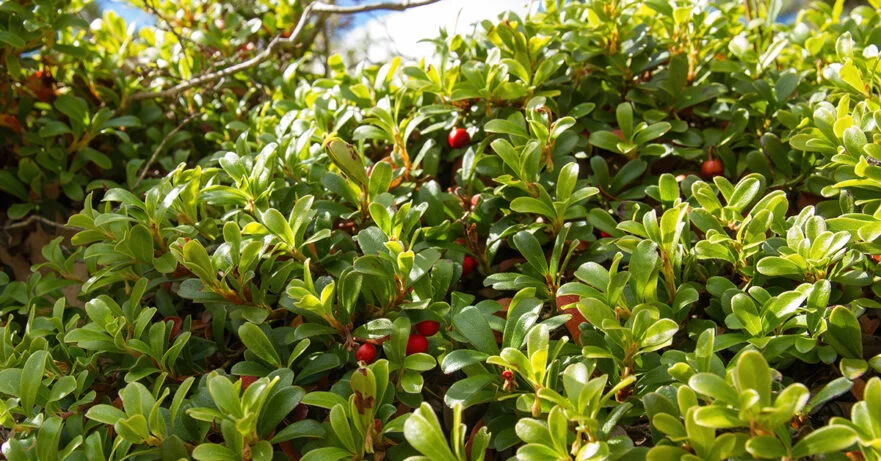In this monograph about bearberry:
📖 Introduction | 🌱 Botanical Description | 📜 Traditional Uses | 🔍 Phytochemistry | ✨ Applications and Uses | 🛡️ Safety Profile
📖 Introduction
Bearberry (Arctostaphylos uva-ursi) is a low-growing evergreen shrub prominent in herbal medicine primarily for its urinary tract benefits. Traditionally used by Native Americans, its leaves possess compounds effective for managing urinary and bladder conditions.
| English Name | Bearberry |
| Latin Name | Arctostaphylos uva-ursi |
| Parts Used | Leaves |
| Traditional Uses | Treating urinary tract infections, astringent, antiseptic |
| Herbal Actions | Diuretic, antiseptic, astringent, anti-inflammatory |
🌱 Botanical Description
Scientific Classification
Arctostaphylos uva-ursi belongs to the Ericaceae family.
Physical Characteristics
Bearberry has leathery green leaves, pink bell-shaped flowers, and bright red berries. It forms dense mats that cover the ground.
Natural Habitat and Cultivation Details
This shrub is native to the colder regions of North America, Europe, and Asia. It thrives in arctic and subarctic zones. It prefers sandy or rocky soils, typically found in pine forests and moorlands.
📜 Traditional Uses
Bearberry leaves have been utilized for their antiseptic properties to treat urinary tract infections and as a natural diuretic. Its astringent qualities also made it popular for topical applications on cuts and mild abrasions.

🔍 Phytochemistry (Active Constituents)
Key compounds underpin bearberry’s medicinal applications:
- Arbutin: This phenolic compound is metabolized into hydroquinone, providing antiseptic properties crucial for treating urinary tract infections.
- Tannins: Contribute to the astringent effects, helping with inflammation and protecting against bacterial invasion.
- Flavonoids: Offer antioxidant benefits, supporting the overall health-promoting properties of bearberry.
✨ Applications and Uses
Bearberry’s primary health applications are:
- Urinary tract health: Bearberry, due to its antiseptic qualities, is extensively used to alleviate and prevent urinary tract infections.
- Anti-inflammatory properties: Its tannins reduce inflammation in the urinary system, aiding in managing symptoms associated with infections and irritations.
- Antioxidant support: The flavonoids in bearberry help neutralize free radicals, contributing to cellular health and prevention of oxidative stress.
🛡️ Safety Profile
Bearberry is safe for most adults when used in moderation.
However, prolonged use, typically defined as daily consumption for longer than four to six weeks, is not recommended due to its hydroquinone content, which can lead to potential liver damage.
It should not be used by pregnant or nursing women or those with kidney disease.
Because bearberry can affect sugar levels, people with diabetes should use it cautiously. Always consult a healthcare provider before starting any new herbal treatment, especially if on medication, to avoid potential interactions.
📃 Related Posts
🌱 Related Herbs

